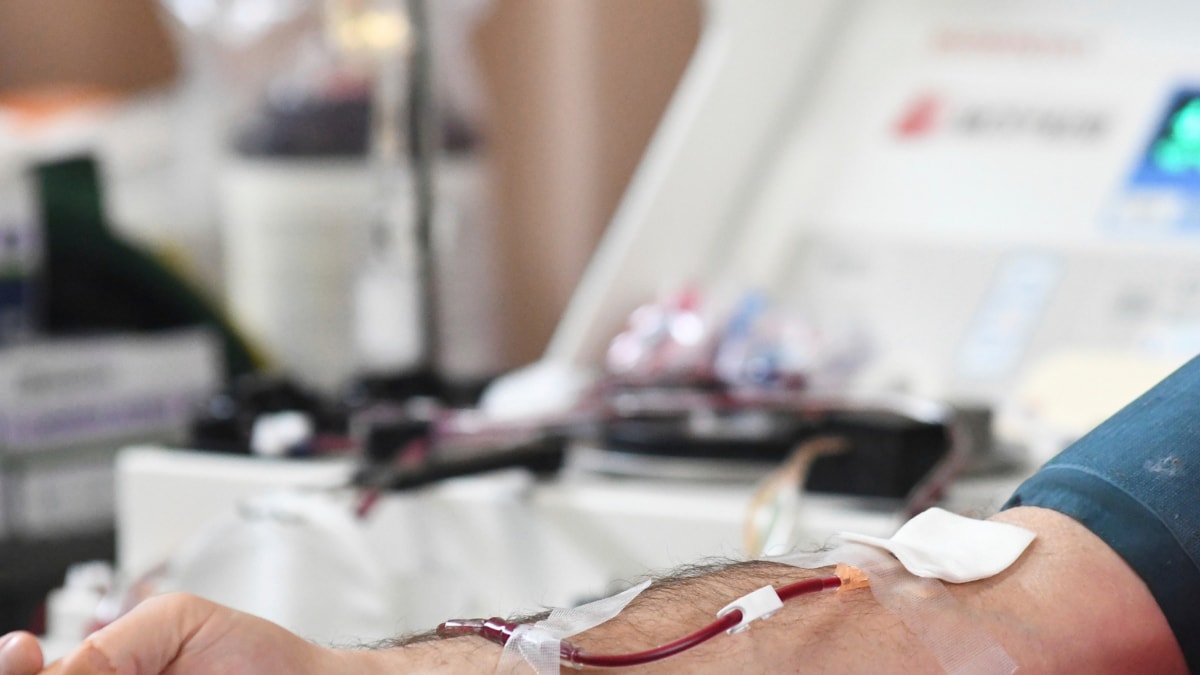5 Things To Keep In Mind When Donating Blood

Giving blood is a beautiful and noble gesture of humanity and an act of kindness that can help save lives
Blood Donation: Knowledge and awareness of critical aspects of blood donation can play a pivotal role in ensuring the safety of the blood transfusion process
Donating blood is a selfless gesture that can help countless people in need and improve or save lives. It is crucial to be aware of a few things, especially if you’re thinking of donating blood. Knowledge and awareness of critical aspects of blood donation can play a pivotal role in ensuring the safety of the blood transfusion process. Dr Sunita Kapoor, Director and Consultant Pathologist, City X-ray & Scan Clinic lists important considerations for blood donation, from getting ready in advance to comprehending aftercare.
Determine eligibility
It is essential to establish your eligibility before giving blood. A person must be between 18 and 60 years of age to donate blood. Your ability to donate depends on several factors, including your age, weight, general health, and any underlying medical issues. To learn more about specific eligibility requirements, get in touch with your neighborhood blood donation center or visit their website. Since it ensures both your protection and the recipient’s safety, being truthful during the pre-screening procedure is essential. There are other ways also to help, even if you are unable to give blood, such as volunteering or planning blood drives.
Prepare your body
Take care of your body in advance to maximize your donation experience. Make sure you’ve had a healthy supper and are well-rested. Water is the best fluid to consume in the 24 hours before the donation. Drinking alcohol can lower the quality of your blood, so refrain from doing so for at least 24 hours before donating. It’s also a good idea to skip any vigorous workout right before giving blood. Maintaining an acceptable blood volume and ensuring a successful donation are made possible by these preparations.
Understand the procedure
Learn about the blood donation procedure to allay any concerns or worries you may have. Typically, the procedure includes registration, a quick medical history form, a quick physical exam, and the actual blood donation. Blood is drawn from a vein using a sterile needle by a qualified expert during the collection, which typically lasts between 10 and 15 minutes. Before being utilized for transfusions or the creation of life-saving blood products, the collected blood is handled and preserved with great care.
Hydrate and nourish yourself after donating blood
It is important to resupply your body with resources after giving blood. Drink a lot of liquids, particularly water, to assist and replace the volume lost during the donation process. For a few hours, desist from strenuous physical activity, and weightlifting. To boost your energy levels, eat a nutritious snack. Lean meats and leafy greens are two nutrient-dense foods that can help with red blood cell regrowth. Iron-rich diets are also beneficial.
Monitor your well-being
Immediately after donating blood, be mindful of your health. Some people may experience transient side effects like lightheadedness, dizziness, or bruising where the needle was inserted. Usually, these signs end on their own. If you’re feeling unwell or sick or have persistent symptoms, get in touch with the blood donation center for advice. It’s crucial to pay attention to your body and, if required, seek medical care. Remember that your health and safety are of utmost importance, and regular blood donations should be in accordance with the guidelines provided by the donation center.
Giving blood is a beautiful and noble gesture of humanity and an act of kindness that can help save lives. You can contribute to an effective and safe blood donation procedure by keeping the above-mentioned points in mind. Blood donation not only saves lives but it has some key benefits also. It not only balances the level of iron in the body, but also regulates blood flow, reduces the risk of cardiovascular disease and stroke, triggers the production of new blood cells and helps in weight loss. Donating blood has a positive effect on a donor’s physical and psychological being as well.
For all the latest lifestyle News Click Here


